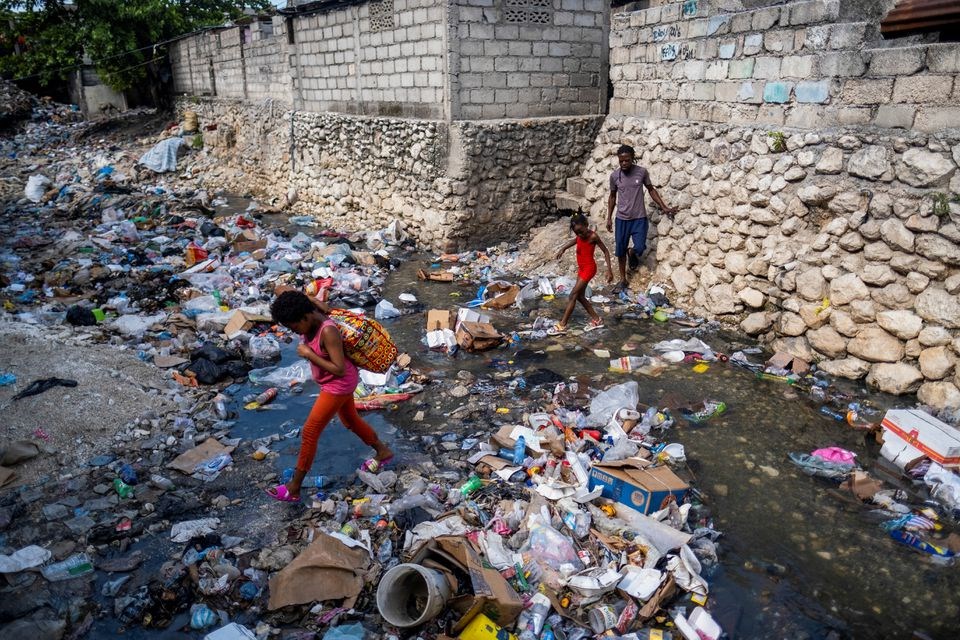UN: 19,000 Haitians face starvation, catastrophic food insecurity
The UN declares the highest level of food insecurity in Haiti for the first time.
-

Two girls leap over a stream filled with trash in Port-au-Prince, Haiti, October 13, 2022 (Reuters)
4.7 million people, nearly half of Haiti's population, are currently suffering from acute food insecurity.
However, with 19,000 people suffering from famine in the coastal neighborhood of Cite Soleil in Port-au-Prince, the UN has declared its highest level of food insecurity in Haiti.
With violence growing and armed groups battling for control, many residents of this neighborhood cannot go to work or access markets or food aid.
“Haiti is facing a humanitarian catastrophe,” Jean-Martin Bauer, Haiti's director for the UN's World Food Program told reporters, adding that the extent of food insecurity in the country is getting worse.
"The gang violence has cut off the capital from the food-producing south, and that means that we have now an increase in food insecurity," according to Ulrika Richardson, Resident and Humanitarian Coordinator for the UN system in Haiti.
Earlier this week, UN Secretary-General Antonio Guterres called for a special armed force to be immediately deployed to the country to aid Haitian police, warning of the country's "dramatic deterioration in security."
The UN has a five-scale food insecurity classification known as IPC. When a large enough portion of a population is estimated to be at IPC 5, a famine is declared by the WFP. This marks the first time such a level has been declared in Haiti.
Although the World Food Program delivered food aid to more than 100,000 in Port-au-Prince, Cite Soleil's gang violence meant that many people could not reach the aid.
With experts warning of a possible resurgence of cholera in the country, food insecurity is a death sentence for the 100,000 children under five suffering from acute malnutrition.

 2 Min Read
2 Min Read










